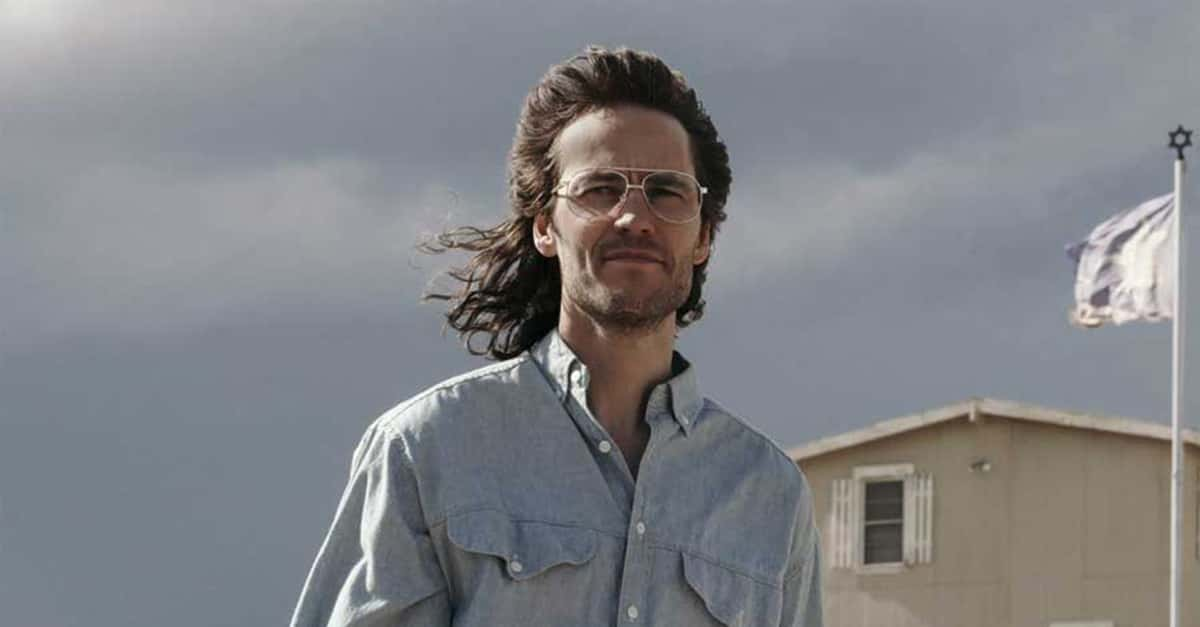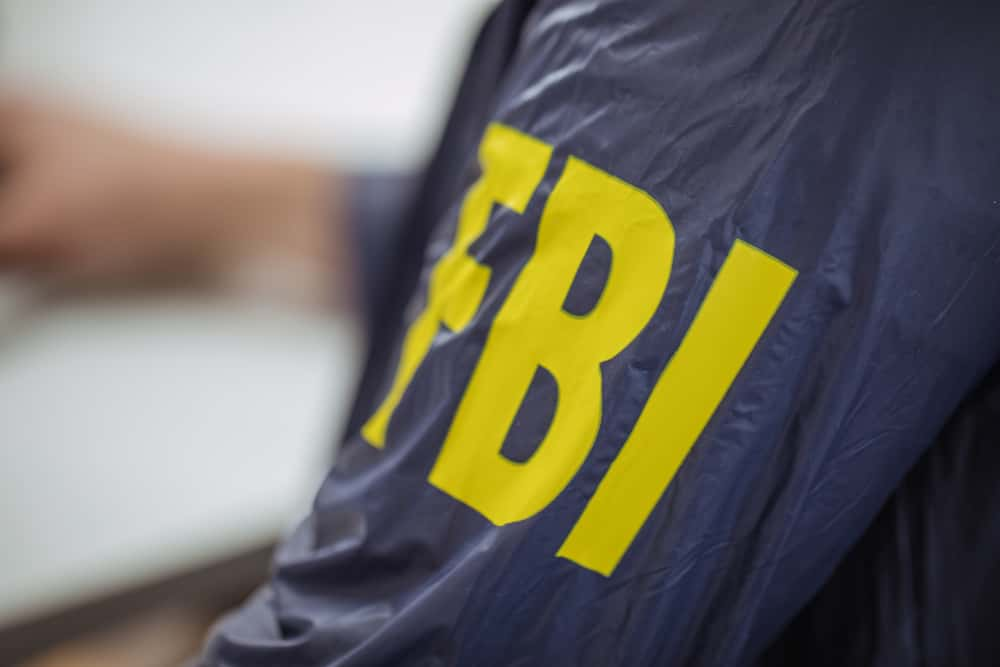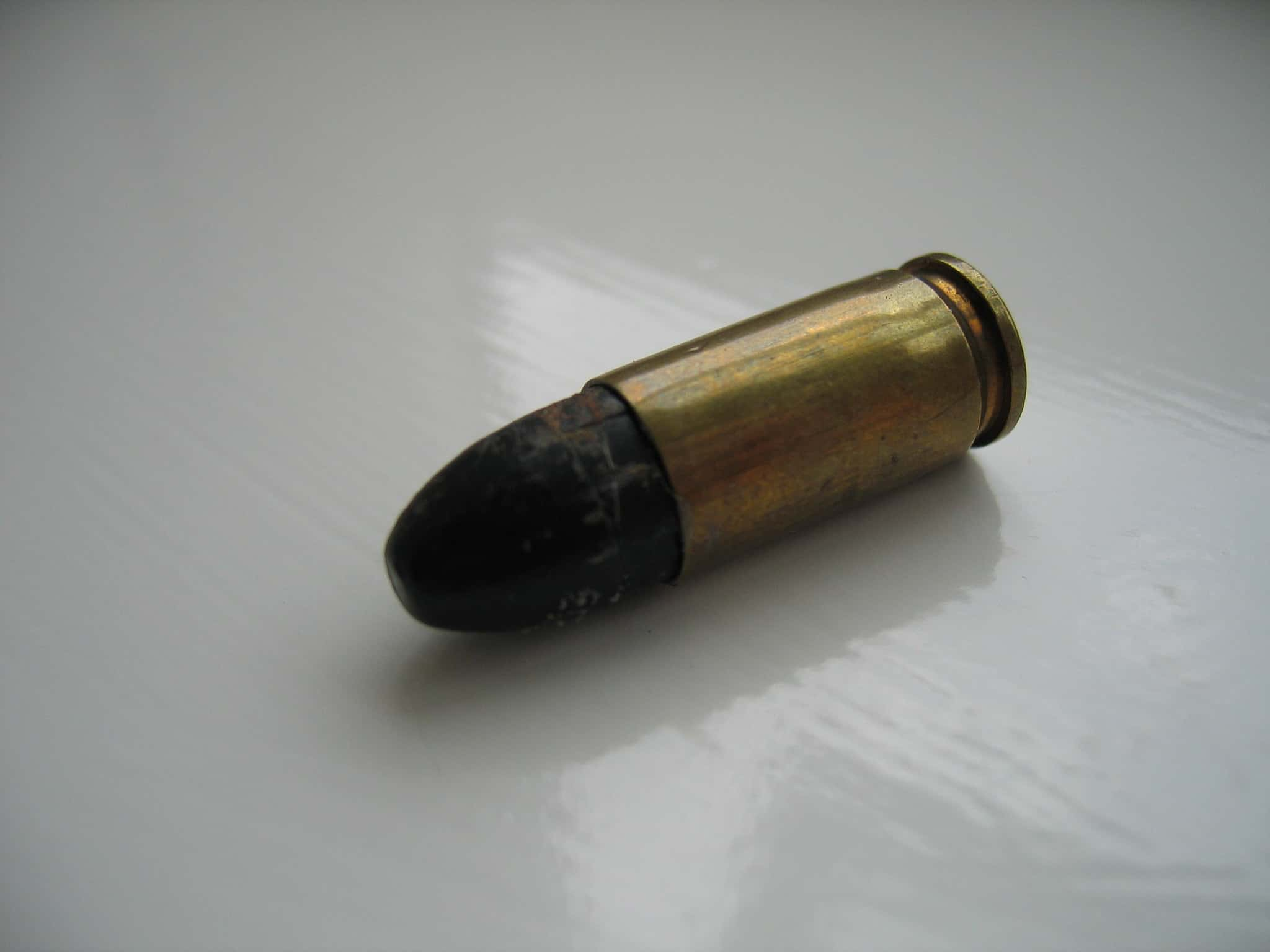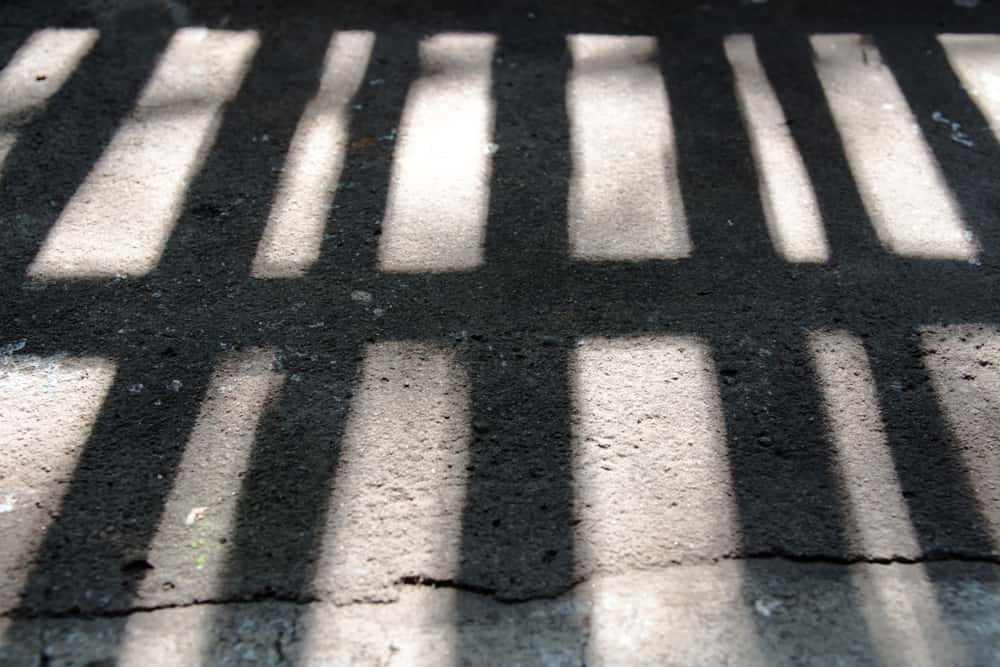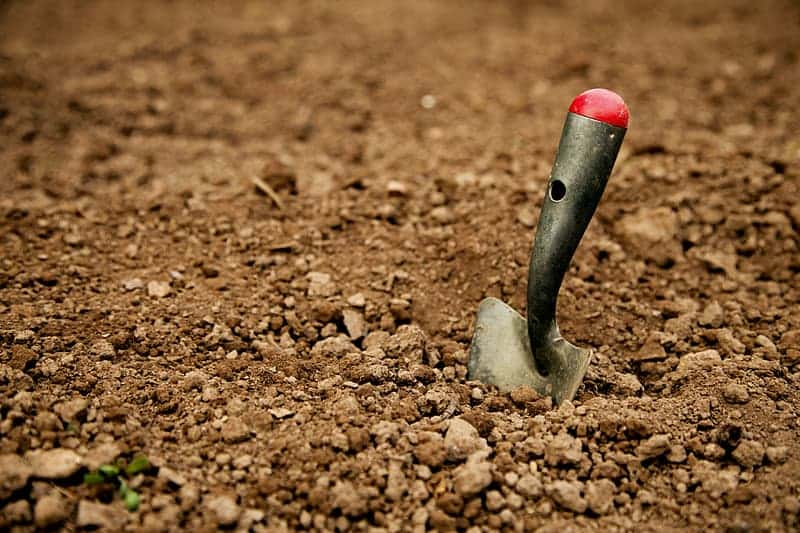“No man can know me nor my father unless they open their book and give a fair chance in honesty and equity to see the seals.”— David Koresh
David Koresh was the leader of the Branch Davidians cult and believed himself to be a prophet. In the early 90s, he and his followers amassed a large store of weapons at their compound near Waco, Texas in preparation for the coming apocalypse. Together, they built what they called “An Army of God.” On February 28, 1993, the Federal Bureau of Alcohol, Tobacco and Firearms raided his compound. Koresh led his followers in a 51-day standoff that ended on April 19th with the compound in flames and Koresh and 76 Branch Davidians dead. Below are 43 apocalyptic facts about the charismatic cult leader and the standoff that has gone down as one of the deadliest in American history.
David Koresh And The Waco Siege Facts
43. Who Shot First?
It's still not known who shot first in the conflict—the Branch Davidians and the ATF both place the blame on the opposing side. However, whoever shot first, we do know that during the initial gunfight, Koresh called 911 to try and get the authorities to lay down their arms, and while on the phone he preached the Bible to the operator.
42. Murder
In 2009, Koresh’s mother Bonnie, who was 64 at the time, was stabbed to death by her younger sister Beverly in Beverly's home. Bonnie and her sister were the only two people inside the house at the time of the murder, and Beverly had a history of mental illness. According to reports, Bonnie had gone to Beverly’s house to take her to the doctor, but the motive for the murder is unknown.
41. Biblical Name
David Koresh was not born with that name. His real name was Vernon Howell, but upon becoming leader of the Branch Davidians, he formally changed his name to David Koresh. He said that the change was due to a newfound belief that he was now the head of the biblical house of David. Koresh is the Hebrew name for Cyrus the Great, the Persian king who allowed captive Jews in Babylon to return to Israel.
40. Lonely and Bullied
During the standoff, Koresh had several late-night chats with the FBI in which he admitted to being a lonely child who was bullied in school. He was dyslexic and was placed in special classes as a result, but according to his mother, as a young boy he was interested in learning and always wanted to explore.
39. Challenge for Control
Koresh was only 22 when he joined the Branch Davidians, and soon after joining he became involved with the cult’s prophetess, Lois Roden. Upon her death, Koresh challenged her son George for leadership of the cult, and turned up at the compound with seven heavily-armed followers who would later be dubbed the "Rodenville Eight." During the ensuing confrontation, George was wounded in the hand and chest, and Koresh and his men were arrested. However, the seven followers were acquitted and Koresh's trial ended in a mistrial after he claimed he and his men were aiming at a tree and missed.
38. Drawing Interest
Koresh became interested in the Bible around age 12 or 13, and would listen to preachers on the radio. By age 18, despite having dropped out of school in his freshman and suffering from dyslexia, he’d allegedly managed to memorize both the Old and New Testaments.
37. Polygamy
When Koresh took control of the Branch Davidians he announced that he alone would be allowed to reproduce, and forced the rest of the men in the cult to take a vow of celibacy and offer him their wives. Koresh also gave a number of pre-pubescent girls a plastic Star of David, which literally signified that they were ready to have sex with him. Koresh married several of the girls and had as many as 19 wives.
36. Skip the Middle Man
According to the media and the FBI, Koresh saw himself as a Jesus figure and was said to have a “Messianic Complex.” Koresh denied these claims, and said that while he was not Jesus himself, he was still a “lamb of God” and that God spoke to him directly.
35. Abandoned and Reunited
David Koresh’s real father, Bobby Wayne Howell, abandoned him and his 14-year-old mom before Koresh was born; Howell was 19 at the time. When Koresh was a kid he managed to locate his father, with the two being introduced by Koresh's paternal grandmother. According to the Washington Post, the pair hugged when they met, and instantly hit it off. Koresh supposed that he got his interest in carpentry from his birth father, who was a carpenter and a mechanic.

History's most fascinating stories and darkest secrets, delivered to your inbox daily.
34. A Different Momma
When Koresh was just an infant, his mother married a man who had just been released from prison and was violent and abusive towards her and Koresh. When Koresh was 18 months old, Bonnie gave him to her mother to look after. Koresh reportedly called his grandmother "Momma," and she remembered him as being bright and precocious.
 Wikimedia Commons, Levi Clancy
Wikimedia Commons, Levi Clancy
33. Humanizing a Monster
In the January 2018 mini-series Waco, Taylor Kitsch, of Friday Night Lights fame, portrayed Koresh. When asked how he kept his own personal judgement from affecting his take on the character, Kitsch said he tried humanize the man by showing "every light that he could," especially focusing on the abuse that Koresh has suffered as a child. Kitsch also stated that after filming, it took “a bunch of therapy and then motorcycle rides” to shed the character.
32. Delivering the Goods
The authorities got the tip that the Branch Davidians might be dangerous when a UPS driver accidentally saw what was inside a package he was delivering to the Mount Carmel Center: automatic weapons, hand grenades and explosive powder. After seeing this shocking cargo, and noting that several similar seeming packages had been delivered there in the weeks prior, the driver thought it prudent to tell someone about what was going on. Probably a good call, driver.
31. Catch the Criminal
Early in the siege, negotiations with Koresh and his followers were conducted by two teams: one consisted of official FBI negotiators and the other, members of the Hostage Rescue Team (HRT). These two units differed greatly on how best to approach the situation—the FBI team specialized in talking and wanted a more peaceful negotiation, while the HRT used far more aggressive tactics, such as crushing Koresh's cars in plain view of the Davidians. If the HRT had had their way, they also would have cut off power and water to the compound, but the negotiators wouldn’t allow it.
30. End of Days
The Branch Davidians believed that the second coming of Christ and subsequent end of the world was imminent. Koresh was fixated on The Book of Revelations and the end of days. He was known to preach about the coming apocalypse for up to 19 hours at a time and used it to stoke fear in his followers and ensure their obedience. After the Waco siege, the effect that this had on some of the surviving children was plain, as they drew pictures featuring explosions, castles in the sky, and the words “everyone is going to die.”
29. Will Come Out When He’s Ready
In mid-April, near the siege's end, religious scholars attempted to contact Koresh through a radio transmission discussing Revelation. Shortly after, Koresh sent a message through his lawyer saying that God had given him a message and that he and his followers would come out after they had finished writing the message on the seven seals.
28. No Formal Name
The Branch Davidians was the name assigned to Koresh’s group by the media, but that wasn’t how they referred to themselves. Waco survivor David Thibodeau stated in his memoir “We have no formal name for our community. If anyone asks, we just say we’re students of the Bible.”
27. Ending the Siege
The FBI was skeptical of Koresh’s promise to come out on his own, so they convinced the Attorney General to approve a plan that would end the siege. The plan involved shooting two cans of CS Gas (tear gas) into the compound to try and force them out.
26. A Portrait of Evil
The Waco Tribune Herald newspaper was not sympathetic to Koresh. The day before the ATF raid, they started running a series of articles called “The Sinful Messiah.” In the articles, they exposed the activities of Koresh and his followers, portraying Koresh as an abusive sexual predator. The articles gained national attention, and the rest of America learned who he and his followers were for the first time.
25. Lamb’s Role
David Koresh strongly identified with the lamb referred to in Revalation 5, and saw his role as separate from Jesus. He believed that the lamb’s job was to open the seven seals and to interpret the scroll that is alluded to in Revalation 5:2, which would bring about the end of days and Christ’s revelation.
24. The Beginning of the Standoff
On February 28, 1993 the Federal Bureau of Alcohol, Tobacco and Firearms raided the Davidians' Mount Carmel compound and got caught in a four-hour gunfight with the Davidians. When the fight was over, six of Koresh’s followers and four ATF agents were dead, and the standoff began.
23. Fire!
On April 19, 1993, once the plan to gas the compound was approved, the FBI used two specially equipped tanks to infiltrate the compound and get 400 containers of gas inside. The attack lasted six hours, yet most of the Davidians remained inside. After the fighting ended, fires broke out all over the compound and gunfire was heard from inside. The situation was too dangerous to allow firefighters in, so the flames quickly spread across the entire property. In the aftermath, 76 bodies were found, 25 of which were children.
22. The Smoke Didn’t Kill Him
At the end of the siege, it was discovered that the smoke from the fire was not what killed Koresh. His body was found with a gunshot wound to the head, but whether it was murder or suicide is unknown.
21. A Means of Communicating
In an interview with the New York Times, the FBI’s principal negotiator, Byron Sage, opened up about the extreme lengths he and his team employed to communicate with Koresh’s followers. Since only Koresh and his top lieutenants, Steven Schneider and Wayne Martin, would speak over the phone, they had to broadcast messages over a PA system. Altogether, there were 754 phone calls, one face-to-face in the driveway between Sage and Schneider that lasted 90 minutes, and one where he shouted to Schneider from a tank parked 15 feet from the door.
20. An Offer He Could Refuse
During the exchange with Schneider from the tank, Sage promised that Koresh could continue to preach in jail, with a special meeting room provided for his followers, and he would also be provided with a stenographer for his book. That evening, the negotiators brought Schneider an official version of the offer, signed by law-enforcement officials. However, when Koresh received it, he reportedly crumpled it up and threw it away.
19. Covering his Tracks
To protect himself from prosecution for having sex with a minor, Koresh orchestrated a fake marriage between one of his child-wives and another follower. The marriage was in name only and was never consummated, but the man was made to claim Koresh's children as his own.
18. Next Gen Prophets
Through his multiple marriages, Koresh’s mission was to produce a minimum of 20 heirs who would be the next generation of prophets and who would witness the end of days as described in Revelation.
17. Spilled the Beans
The ATF raid of Koresh’ compound was intended to be a surprise, but a cameraman for a local news station accidentally tipped the Davidians off. Knowing that the raid was about to take place, the cameraman innocently asked a mailman for directions. What he didn’t know was that the mailman was actually one of Koresh’s cult members, who then immediately tipped them off. By the time the ATF got to the compound, the Davidians were armed and ready.
16. What They Saw
In the first five days of the siege, Koresh allowed 21 children to leave the compound. The children were immediately taken to a Methodist home and were provided with mental and physical medical attention. In speaking to the children, psychiatrists learned that over half of the children had seen blood and/or a dead body, and they acted as if their parents were already dead, which, sadly, would soon prove to be prophetic.
15. Botched Handling
After the Waco Siege, the government faced heavy criticism for their handling of the incident. Attorney General Janet Reno was forced to admit that there was no evidence of child abuse, which had been one of the primary reasons given for ordering the gas attack, and that some of the gas the FBI used could be flammable under the right conditions. While an investigation revealed that the government agents were not responsible for starting the fires or shooting at the compound, the raid was seen as an example of government overreach and intrusion.
14. Inspired by Waco
Two years to the date after the end of the Waco standoff, Timothy McVeigh bombed the Oklahoma Federal Building, leaving 168 people dead. It turned out that this was no coincidence; McVeigh was an anti-government US Army Vet who had actually observed the Waco standoff from a nearby hill. When he was arrested, he credited the events at Waco for giving him his motive.
13. Murder Suicide?
Of the 76 dead bodies found in the compound after the fire, many of them had fatal gunshot wounds to the head, chest and face. David Thibodeau, one of the nine survivors, claimed that the FBI had shot these people—a claim which the FBI has denied. Thibodeau also conceded that some of them may have shot each other to avoid death in the fire.
12. Fire from Within
Who actually caused the fire that ended the Waco siege has long been contested. The FBI claims that the Davidians started the fire, while the survivors believe that the FBI was behind it. An independent arson investigation was able to determine that the fire started inside the building, but not how it was started or by whom.
11. Unpublic Funeral
Koresh’s mother did not want the publicity of a funeral, and instead buried her son in an unmarked grave with just a few family members present. Koresh’s mother also said "I don’t think I will ever rest in my heart" since she didn’t get to see the body and so she couldn't be positive that Koresh had even died at all.
10. Bringing Back the Bodies
When Koresh challenged George Roden for leadership of the Davidians, Roden allegedly dug up a body and suggested that they have a “corpse resurrection contest” to determine the rightful leader. Koresh tried to get Roden arrested for corpse abuse, but the prosecutors wouldn’t press charges without proof.
9. Over the Edge
In mid 1989, George Roden brutally killed one of the Davidians, Wayman Dale Adair, with an axe. Adair had come to Roden to tell him about a dream where God had visited him and chosen him as the Messiah. Roden successfully pleaded insanity and was committed to a mental hospital, but during this time Koresh was able to pay the back taxes on the Mt. Caramel property and subsequently took legal control.
8. Didn’t Buy It
The ATF made several attempts to get in and surveil the compound, but the Branch Davidians didn’t fall for any of them. One of their misguided efforts included posing as university students living in a house nearby. However, there were a few things that the ATF failed to consider: Firstly, the agents were all over 30. Secondly, they weren’t registered at any local colleges, and third, they didn’t even pretend to have a college schedule. Ya, can't really blame the Davidians for seeing through that one.
7. The Missing Door Holds The Key
The right front door to the compound was never found after the fire, even though it was made from steel and should have survived the blaze. During the siege, the Davidians told the media that the bullet holes in the right door all went inward, proving the FBI had shot first. A reporter who visited the compound before the fire even verified the Davidians’ story. The left door that survived the fire had bullet holes going both ways, and thus proved nothing.
6. New Rules
One of the outcomes of the Waco siege was that the ATF laid down new rules on how to handle such situations. New recruits were made to read a write-up of the tragic events, and from then on the use of force became an absolute last-resort tactic.
5. Reduced Charges
Eight of the nine Waco survivors were arrested on firearms charges and sent to prison. They appealed their cases right up to the Supreme Court, and their 40-year sentences were reduced. By 2007, all of the survivors were out of prison.
4. Origins of a Cult
In 1959, the Branch Davidian cult was founded by Benjamin Roden and stemmed from the Seventh-Day Adventist Church. In 1962, they acquired a piece of land called Mt. Caramel near Waco, Texas. At one time, Koresh had also been a member of the Seventh-Day Adventists, but was kicked out for being “a bad influence on young people.” After moving to Hollywood in a failed attempt to become a rock star, Koresh relocated to Waco and joined the Branch Davidians in 1980.
3. Unproven Allegations
In 1984, Koresh married 14-year-old Rachel Jones after claiming that God told him to. Two years later, he took Rachel’s 12-year-old sister as a wife, this time saying that God told him to have several wives. Sex with someone that young was illegal in Texas, but after six months, Texas Child Protection Services was unable to find any proof of a sexual relationship.
2. Handing them Over
The 14-year-old Jones married Koresh with her parents’ blessing—they were his followers and happily gave consent. Since the legal age of marriage in Texas was 14 with parental consent, technically he wasn’t breaking the law. Several other parents also gave over their daughters to Koresh for a "spiritual" marriage.
1. Keeping the Faith
In a new documentary about the events leading up to and after the Waco Siege, survivors reveal that they still believe in Koresh and the cause of the Branch Davidians. In an interview, Kat Schroeder, one of Koresh’s wives, explained: “I think the FBI never tried to understand our beliefs… They didn’t have any idea that everyone in that building had complete and utter devotion to doing God’s will over man’s will. And that meant we were not coming out.”
Sources: 1, 2, 3, 4, 5, 6, 7, 8, 9, 10, 11, 12, 13, 14, 15, 16

